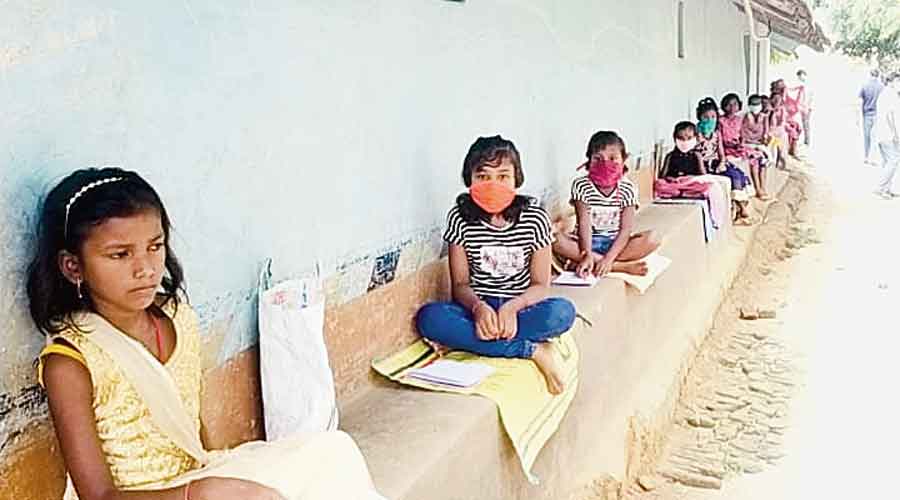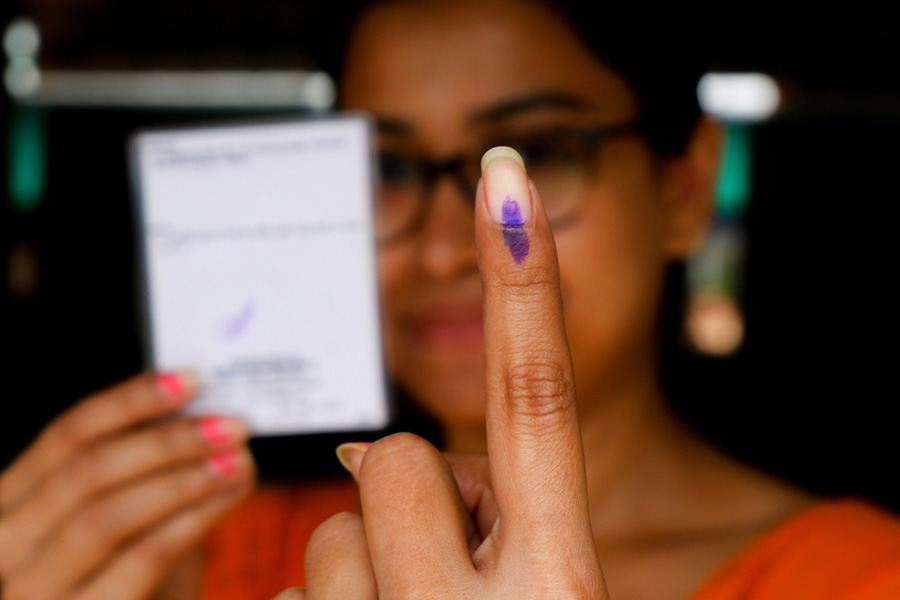An innovative effort by a school principal to use loudspeakers to impart education to tribal students not possessing smartphones in a village in Dumka in Jharkhand will soon feature in a documentary film.
Delhi-based filmmaker Satyajit Sharma, with roots in Dumka, has started shooting for a nearly 50-minute documentary on the effort of the principal to continue education during the lockdown at Upgraded Middle School in Bankati in Masalia block of Dumka district, around 290km from state capital Ranchi.
“I came to know about this through a news article and was impressed with the effort to ensure that lessons are not hampered for students who cannot afford smartphones to access online classes. I started shooting the film earlier this week and hope to complete it in the next week. I am yet to finalise the name of the documentary but it would be loosely based on Mohalla School: Bankati Model. The documentary will be screened at film festivals. I have also planned to send it to National Geographic Channel and Doordarshan,” said Sharma, 44, an alumnus of Kirorimal College, Delhi. Sharma has edited films for National Geographic Channel, BBC, Doordarshan and the reality show MTV Roadies.
The principal, however, feels that the credit for the education initiative goes to the perseverance of the students.
“There were a total of 250 students, mostly girls (nearly 60 per cent), of whom more than 206 did not have smartphones and hailed from very poor backgrounds. When the lockdown began and we were asked to start online classes with content provided by the Jharkhand Education Project Council (JEPC), I was in a dilemma imagining the helpless situation of the students. I took two loudspeakers on rent (daily rent of Rs 800) and used one lying in the school to start the classes. I was not sure if it would be a success. All credit goes to my students who have made this innovative idea a success by religiously attending all classes during the specified time with almost 100 per cent attendance,” said Shyam Kishore Singh Gandhi, the principal of the school.
The school has classes between I and VIII and has seven teachers. Seeing the efforts of the principal, 14 volunteers from the village came forward to assist the students.
“The loudspeakers were installed on treetops and on high walls and wires were fitted to the microphone in the school and we played the online content from the smartphones. Gradually, a few matriculate and intermediate passed youths volunteered to assist us. Earlier students used to contact teachers for any clarification through other mobile phones. But after the volunteers came forward, we could cover almost all of the mohallas (areas) and students could get in touch with the volunteers who either solved it on the spot or routed it to the teachers who then solved it in the next class. Each class starts from 10.30am and lasts for 3 hours,” the principal said.











